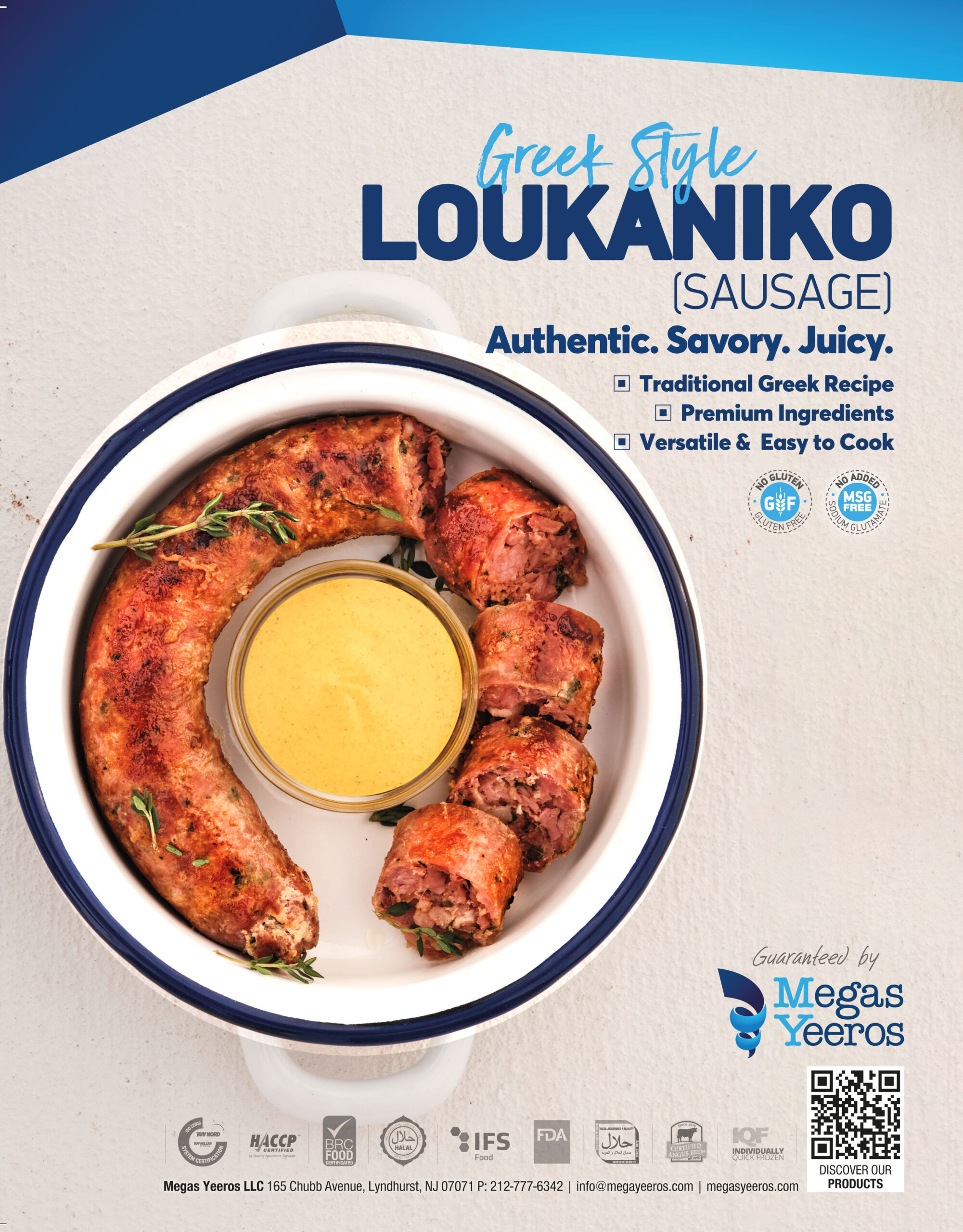Restaurateurs Challenge Third-Party Delivery Providers
Posted by estiator at 6 April, at 05 : 50 AM Print
As takeout and delivery grow, restaurants rebel against high fees and unfair practices.
By Constantine Kolitsas
The fastest-growing segment of our industry is the takeout-and-delivery sector, which we have covered in Estiator over the past few years. Much of its growth has been accelerated by the emergence of third-party online ordering and delivery platforms, which aggregate information (in the form of menus, and more) from restaurants within specific geographies and provide a onestop shop from which to choose a restaurant, place an order, and get it delivered to the customer’s door. These third-party companies have charged a premium, often to the consumer, as well as to the restaurant (in the form of commissions). Over time, those fees have escalated, with some companies charging a commission upwards of 30%. What has happened, and what was perhaps not foreseen by the restaurants, is that these companies are cannibalizing restaurants’ on-premise business, particularly in metropolitan markets like NYC.
The argument for using the services was once sound, and it goes like this: When considering whether or not to sign up with online ordering or delivery partners, restaurants shouldn’t look at the commission percentage in terms of profit, but in terms of food cost. The theory (which worked through the early stages of the relationship) is that there were no incremental costs associated with the additional business being funneled to the restaurant and, as such, the only true additional cost was the commission. But the volume of business going to restaurants from these platforms has risen, necessitating additional labor or, worse, offsetting existing labor costs away from a contracting on-premise business (with higher margins) to accommodate the growing off-premise business coming in from the ordering platforms.
Now labor must be figured into the value proposition, along with all other costs (occupancy, overhead, etc.), because these services have to a significant extent displaced the traditional business channels. Suddenly the 25-30% commission paid to the platforms has reached critical mass, driving once sound businesses into bankruptcy as the top line for those businesses grows. Yes, read that last sentence again: Many businesses are experiencing top line growth due to increased business from the platforms, only to have their bottom line shattered, forcing them out of business. Business is being hijacked by these platforms, and restaurants are beginning to fight back. In New York City, one law firm, with strong roots in the restaurant business, is not just ringing the bell but rallying businesses behind legislation aimed to curb the ability of these platforms to control the Restaurateurs Challenge Third-Party Delivery Providers As takeout and delivery grow, restaurants rebel against high fees and unfair practices. By Constantine Kolitsas destiny of the restaurants with which they are partnered. Attorney Andreas Koutsoudakis, of Koutsoudakis and Iakovou Law Group, is the son of a diner owner and has been representing restaurant owners in New York and the surrounding metropolitan area for over a decade—both in and out of court. Estiator recently caught up with Koutsoudakis, following his direct involvement, together with the NYC Hospitality Alliance, in getting these highly publicized legislative proposals concerning third-party platforms officially on the table.
Estiator: Are these platforms (Grubhub, Seamless, UberEats, etc.) providing online ordering as well as delivery or just online ordering?
AK: All of these platforms, for the most part, are offering delivery as well as online ordering—of course, for an increased percentage. This makes sense for some businesses to the extent that they don’t have a heavy delivery business and cannot staff delivery persons themselves; however, for a majority of our community’s businesses, employees that do the deliveries are needed for other job duties as well. The problem is that all roads lead to increased commission for Grubhub and the like. Specifically, with the financial power they have, they are able to continuously take more and more business away from in-house dining through marketing, incentives, etc., all on the backs of the restaurants. As a result, the restaurant ends up needing more employees (which in turn means increased payroll and increased wage/ hour/employment liability issues) just to service the Grubhub orders, which after a certain point (as is the case now) are not profitable but which, nevertheless, are needed for cash flow.
Why did restaurants begin using these platforms in the first place?
The initial concept was that Grubhub/Seamless would increase the restaurant’s reach for delivery orders—i.e., “We’ll get you orders from customers who don’t even know you exist.” This was absolutely true in the beginning, except that eventually they literally hijacked the industry and now they have taken even existing customers and created a complete shift from in-house to delivery—all of which they take an increasing commission on with a completely imbalanced amount of negotiating power in their favor. They are also taking a commission from so-called “phone orders,” even when such calls never resulted in orders. This is an example of how they profit from orders beyond delivery. There is no end with them.
What kind of fees do these platforms charge the restaurants?
The fees range from 20-40%. The more “top of the list” a restaurant wants to be, the more they have to pay. This is a self-cannibalizing model for the restaurant users. For example, if everyone agrees to pay the top commission rate, then who would be at the “top” of the list? No one. What would happen is Grubhub would charge, yet again, even more to be on the top.
What kind of financial impact has the rise of these platforms had on small restaurants?
If 30% or more of your business is delivery (at a minimum for most diners in the city), and your average margin (if you’re extremely optimal) is 5-10%, and Grubhub is taking 30% commission, how on earth is this sustainable? You are literally losing money with every order, while Grubhub makes billions with no risk whatsoever.
Many of these platforms have grown to become huge companies. How has that happened, and what does it mean for the future of the restaurant industry?
It doesn’t help. In fact, it only means they have continuously growing power and influence. Even worse, the more they grow, the more data they gather, and new disruptions enter the market, such as ghost kitchens, which is a perfect example. With ghost kitchens, Grubhub creates a restaurant within your restaurant (sometimes without your knowledge!) by taking the data of what customers are searching for and purchasing, at what price, and from whom (in the restaurant’s immediate area—i.e., direct competitors), and then markets the products at the price needed to beat out the other restaurants (even though they are also Grubhub customers, but not at the highest commission).
How have these companies changed the industry landscape?
The industry is shifting—very fast—to one where we only have quick service (no waitstaff) or higher price point full-service. Directly threatened by these changes is the very existence of diner meals at diner prices. The margins are already razor thin, with skyrocketing labor rates, occupancy costs, and food costs. Add a monopolistic and insane commission model type of platform like Grubhub, and you’re even less able to stay alive as a full-service all-day restaurant or diner. In my view, Grubhub and the like are an immediate threat to the very existence of diners.
At Koutsoudakis & Iakovou Law Group, you have been working with restaurant owners to pass legislation in New York City that will protect the industry from being hijacked by these companies. What are some of the centerpieces of the legislation and how will it benefit restaurants?
The following is a description of the six bills that were introduced on February 27, 2020, at a press conference held in front of City Hall:
1. Licensing: This bill will require all companies that wish to operate a third-party delivery platform be licensed in New York City.
2. Commission Cap: This bill would cap the commission that a third-party delivery can charge a restaurant at 10%.
3. Erroneous Phone Order Fees: This bill would prohibit third-party delivery platforms from charging restaurants for phone orders that never happened. The bill would assign a monetary penalty for infractions.
4. Consumer Disclosure: This bill would require third party delivery platforms to disclose to customers all commissions paid by the restaurant for a food order.
5. Menu Pricing: This bill would prohibit third-party delivery platforms from limiting restaurants from charging different menu prices for online and in-store items.
6. Tamper-Evident Packaging: This bill would require the use of tamper-evident packaging for third-party food delivery orders.
What kind of opposition are you up against with regard to the legislation?
The main opposition is, of course, from the big player— Grubhub—and their venture capital investors. They are pouring money into lobbying against the proposed legislation. Of course they are—if it passes, it is proof of a doomed business model, and they will plummet in value.
How can restaurant owners have their voices heard on this critical issue?
Public hearings will take place in April. Interested parties can reach out to me directly via email at andreas@kilawgroup.com or by phone at (212) 386-7606, and let me know if you’d be willing to attend with me and other restaurant owners. This is the time to stand tall and make your voice heard.
Additionally, and absolutely critical, is that every restaurant become a member of the NYC Hospitality Alliance. I have been involved since it was created following the letter grade issues back in 2012. [Here, Attorney Koutsoudakis is referring to the letter grades assigned by health departments in many jurisdictions around the country.] The Alliance is the primary reason we even have a standing chance of getting this passed. Through this organization, politicians know we exist and that we are organized and have power, too. I do not want to hear a restaurant owner complaining who does not join the Alliance. You are either part of the solution, or you’re not. The cost is minimal, but the value for the industry is immense. Join by going to thenycalliance.org. You can also email Brittany Minoff at brittany@thenycalliance.org.













